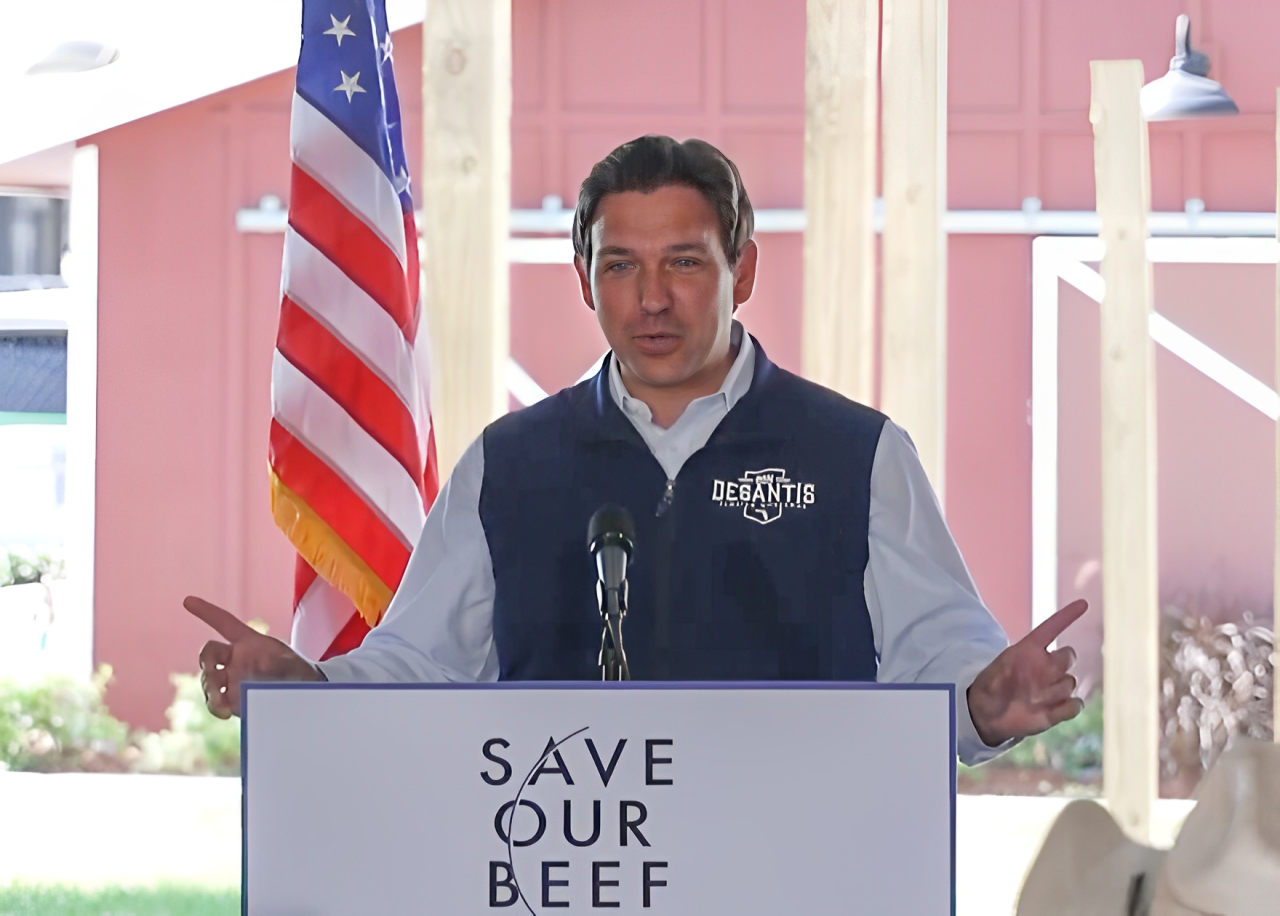Governor Ron DeSantis of Florida recently made headlines by signing a significant piece of legislation, Senate Bill 1084, into law. This bill, which has sparked controversy and debate, addresses multiple facets of the state’s agricultural and environmental policy. One of the most contentious aspects of SB 1084 is its prohibition on the sale or manufacture of lab-grown meat within the state.
The decision to outlaw lab-grown meat in Florida has drawn both praise and criticism from various stakeholders. Supporters of the measure, including members of Florida’s cattle industry, commend Governor DeSantis for taking steps to protect traditional agriculture from what they perceive as a threat posed by alternative meat production methods. They argue that promoting and preserving the state’s cattle industry is crucial for maintaining economic stability and agricultural heritage.
However, opponents of the ban express concerns about its potential implications for innovation and consumer choice. Critics argue that prohibiting the sale of lab-grown meat stifles technological progress and limits options for consumers who may prefer alternative protein sources for health, ethical, or environmental reasons. Additionally, some voices in the business community warn that such legislation could deter investment in Florida’s burgeoning biotech sector, potentially hampering the state’s competitiveness in the global market for alternative protein products.

Beyond its impact on the food industry, SB 1084 also addresses the regulation of electric-vehicle (EV) charging stations, another area of contention. By preventing local governments from imposing their own regulations on EV infrastructure, the bill aims to streamline the development and implementation of charging networks across the state. Proponents argue that this approach will create consistency and remove barriers to EV adoption, supporting Florida’s transition towards cleaner transportation technologies.
However, critics of the bill’s provisions regarding EV charging stations raise concerns about potential limitations on local autonomy and environmental oversight. Some environmental advocacy groups fear that centralizing control of charging infrastructure under the state Department of Agriculture and Consumer Services could hinder efforts to promote sustainable transportation policies at the municipal level.
Read More: Mother and Baby from Barrow County Who Were Missing Have Been Found Unharmed!
Man Accused of Threatening Fulton County Prosecutor Fani Willis!
Governor Brian Kemp of Georgia Implements Strict Immigration Enforcement Legislation
Governor DeSantis’s decision to sign SB 1084 into law reflects a complex interplay of economic, environmental, and technological factors. While the ban on lab-grown meat and the regulation of EV charging stations aim to address specific challenges facing Florida’s agricultural and transportation sectors, they also raise broader questions about innovation, consumer choice, and the balance between state and local authority in shaping public policy. As the impacts of this legislation unfold, stakeholders across Florida will continue to debate its implications for the future of food production, environmental sustainability, and economic development in the Sunshine State.

